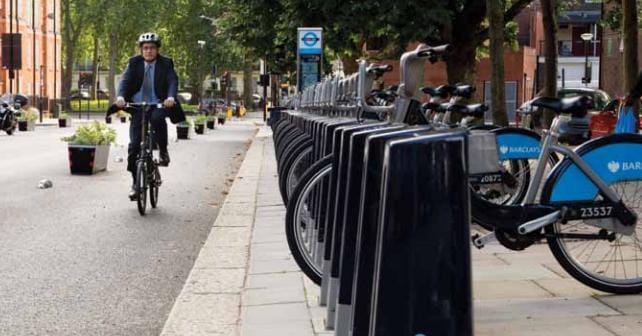London cycling good for health, could be safer

London’s “Boris bikes” are proving to be a health boon for men and older cyclists. However, the city’s bicycle hire program could deliver even better health benefits to citizens in general if cycling safety were improved.
A study published in the BMJ found improvements in lifelong disability adjusted life years (DALYs) for users of the London cycle hire scheme between April 2011 and March 2012. The largest measurable health benefits were for men (who account for the majority of the program’s users) and for cyclists over the age of 45.
Higher injury risks, though, practically eliminated the potential health benefits for female cyclists, the researchers found.
Reducing the risks of injury for cyclists could help improve the program’s overall health benefits, the researchers concluded.
“Although the benefits from increasing the share of trips by older users are larger, it may be more efficacious to reduce the risk of injury first as this is the most commonly given reason for not cycling in London,” the researchers wrote. “In the Netherlands, a comprehensive and well maintained system of cycle tracks, physically protected from fast motor traffic, have helped to make cycling widespread at all ages and reduce the risks of injury. Providing similar quality infrastructure in London might help realise the substantial potential health benefits that cycling could offer at population level.”
“If cycling in central London was as safe as in cities in the Netherlands, the health benefits from initiatives like the cycle hire scheme would be far more substantial,” said James Woodcock, lead author of the study and a researcher with the University of Cambridge’s Centre for Diet and Activity Research.
Introduced in London in July 2010, the cycle hire program offers users 10,000 bicycles at 723 docking stations. Available 24 hours a day and 365 days a year, the program attracted more than 578,000 users who took a total of 7.4 million trips over the course of the year-long study.




